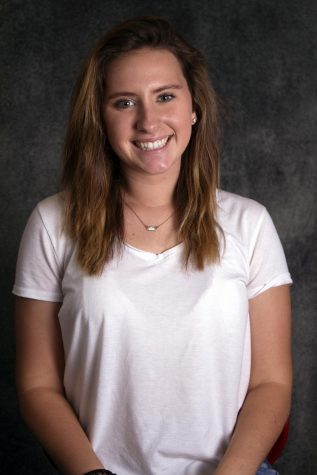What It Feels Like to be More Than It Seems
By Anonymous // As told to Emily Higgins
There was always a chalky powder that left a mineralized taste in my mouth when I took a bite out of my applesauce. The powder is important: it could make my teacher’s day easy or a living nightmare. The applesauce was crucial to have every morning. I would tell myself: the days I did not choke down the most important part of my breakfast, the tasks at school would seem to last longer than they should have been.
When I didn’t eat my applesauce, everything around me would suddenly seem more interesting than the worksheet I received: the pink pearl eraser shavings on the edge of the desk needed to be wiped off, the girl’s shoes in front of me needed to be tied, and the familiar ticking of the clock seemed to be off-beat with the pounding in my heart. Lost in my thoughts, my clear consciousness would start to slip. Am I dreaming? The dream I found myself lost in becomes a slap to reality when my teacher grumbles something when she saw nothing down on my paper.
I did it again.
In her eyes, I was over talkative, never focused and just another student giving her a hard time. I never understood why I was such a problem. All kids would rather play on their phone or doodle than to actually do the work given. I was just like any other kid. Physically, I was “normal.” Mentally, not so much. My brain is wired differently than the rest of my classmates. Different neurotransmitters get recycled in my brain rather than being used. It’s a constant cycle of unused energy resulting in hyperactivity.
My mom has always been hands on with my education since my diagnosis. In kindergarten my teachers noticed that I was higher functioning than the rest of the kids my age. I seemed to be more social and put together, and I understood the basic academic skills. My peers were still throwing toys and getting upset over something little things. Based on my astounding level of comprehension, my teachers thought moving me up to second grade would benefit my academic skills. My mom disagreed, thinking it would be too much of a social jump. Later in the year, in my new first grade classroom, I seemed to be unfocused on simple assignments and my impulses grew stronger. After meetings and appointments I took a bunch of tests regarding my attention span. My parents and teachers filled out some checklists about my possible symptoms. Since my grade jump and newly diagnosed ADHD, my mom has been a major impact on not only my life, but also in my education. This diagnosis meant I got extra time on my tests due to the constant fidgeting and distractions that occur during the 50-minute period.
As the ticking of the clock continues, so did I. My medication and differing doses had to be adjusted. The powder in my applesauce soon became compacted into two round white pills. I did not like it, not only because it was a chore to swallow them, but they also didn’t make me feel right. My mom told me that my body just needed to adjust to the new change. But the thing was, it wasn’t my body that needed to be adjusted—it was my mind. The medication amplified my emotions more than they should. It explains the tantrums and the outbursts I have only had with the new medication. The new dosage and the added chemicals within the medication changed how my mind processed my emotions—not my hyper activity. After long reviews of my medical history, my doctor came up with my same medication and a new, more appropriate dose. Instead of the compacted white pills, I have to take two grey and white capsules, along with another compacted white pill. It seems so much for a problem that is thought of as being little. The medication was something completely different than the medications my past doctors have used: extended release capsules.
The medication stays in my body for a long time. The purpose was to steadily release, for approximately eight hours, the chemicals my brain needed. It used to be that the highway the different neurotransmitters take in my brain was in a giant loop. They were trapped and being recycled over and over, never being used. The medication prevents the recycling from happening, making it easier to control my impulses and stay focused. A simple capsule and pill ensured that there were no more outbursts or disruptions, and I was focused on my worksheets rather than the eraser shavings on the desks or the ticking of the clock.
I was normal.
I always did not understand my diagnosis. My life has been surrounded by the grey and white capsules filled with the white mineralized powder. ADHD mainly has negative connotations thrown around it, rather than it being a disorder that affects kids worldwide. Many people think that I can change, that the impulsive desires and the outbursts can stop. I cannot stop them, but I can embrace them. The doctor appointments and meetings with my parents and teachers was just a part of my routine. Being a Sequoit has eliminated the feeling of having to hide my diagnosis. Most of my energy flows through my STEM classes, where I feel the most focused. Figuring out the whole puzzle from just a simple piece is the most rewarding feeling, especially doing it by myself. In my core classes it is harder for me to pay attention due to the lack of interest in the content. With the help of my friends who push me to be the best I can be and my teachers who are there to backup my education I would be just a boy eating regular applesauce and waiting for the clock to end school—ending the mask I have to put on to hide my diagnosis.
They used to call me talkative, but I am social.
They used to say I don’t follow directions, but I am independent.
They call it a disorder.
I am diagnosed with Attention-Deficit Hyperactivity Disorder, but I don’t let it influence who I am.


